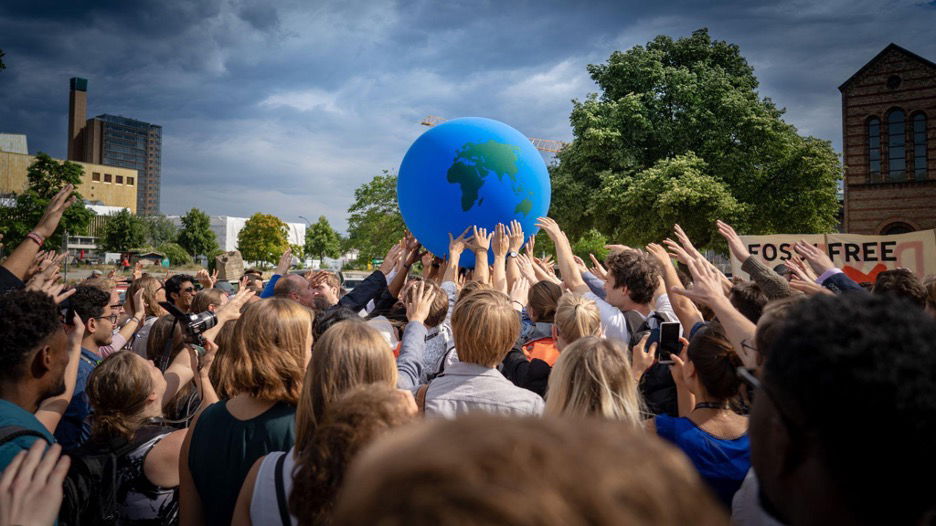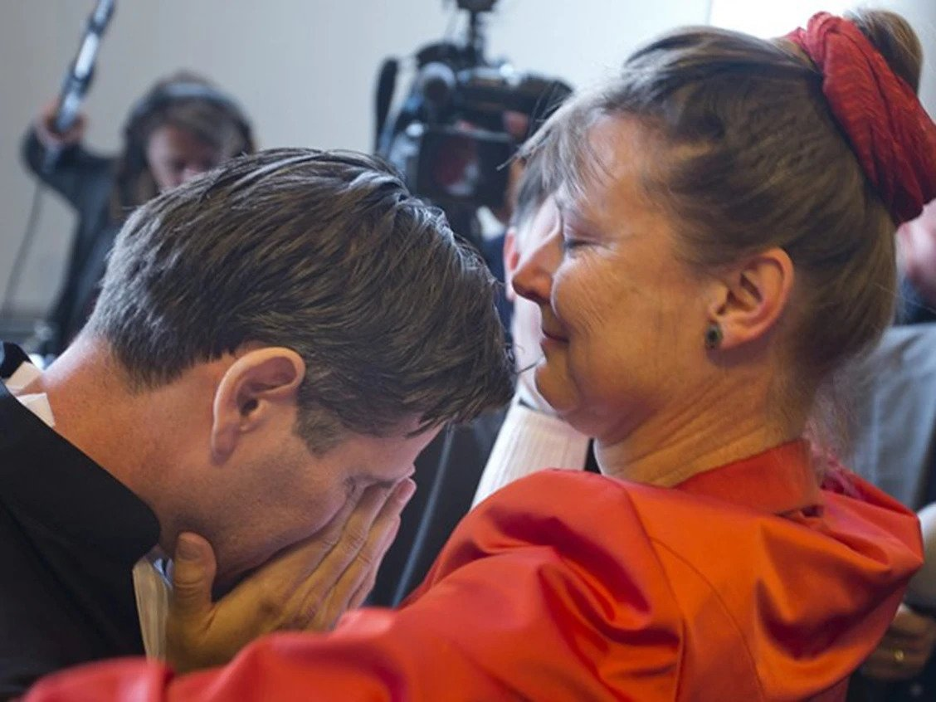Silent majority no more (I/II): the role of youth in driving climate action


· 7 min read
This article is part one of a two-part series on the role of youth in driving climate action. You can find part two here.
In an era when many global leaders and decision-makers remain mired in debates concerning the validity of climate change, the youth have consistently demonstrated their dedication to concrete action. Faced with an uncertain future and the growing impact of climate change in their daily lives, youth activists and groups are combining personal experiences and local viewpoints with climate science principles to drive climate action.
Figure 1. The youth doing a demonstration on global climate and environmental issues in Berlin, Germany

In recent years, the climate ambitions outlined by countries have often exhibited limited or sluggish follow-through, even when the pledged actions fall short of the scale required to address the climate crisis effectively. As climate awareness and concerns rise, many citizens, communities, non-governmental organisations, and sub-national governments seek legal avenues to push their governments to uphold their climate-related rights and responsibilities. This endeavour involves broadening and aligning climate considerations within existing energy and natural resources legislation, advocating for increased climate disclosures, enforcing corporate liability, establishing fair compensation norms, and, at the very least, honouring existing climate commitments. The youth are both leveraging and adding to this body of legal precedents to rally for climate mitigation and adaptation.
In 2019, 900 Dutch citizens, under the auspices of the NGO Urgenda Foundation, took their government to court to adopt more ambitious emission reduction targets. The Intergovernmental Panel on Climate Change’s (IPCC) 2007 report stated that developed countries would have to reduce their emissions in 2020 by 25-40 percent and in 2050 by 80-95 percent, compared to 1990, to limit global warming to a maximum of 2°C. Until 2011, the Dutch government was officially working towards an emissions reduction of 30 percent by 2020 (from 1990 levels). After 2011, they readjusted the target to 20 percent (from 1990 levels) to match the European Union’s 2020 Climate and Energy Package targets without providing an explanation for why this reduction was considered adequate to meet the subsequent 2050 targets. The hearing marked the first time a national court affirmed the government's legal obligation to protect its population against climate change. The court further stated that while climate change is a global problem, its solutions must be implemented domestically; all states must take adequate and appropriate measures to reduce their emissions in keeping with their international obligations.
Figure 2. Urgenda Foundation director Marjan Minnesma celebrates the court decision ordering the government to cut the country’s greenhouse gas emissions by at least 25 percent by 2020. (Credit: Associated Press/Peter Dejong)

Similarly, calling for domestic law to reflect and be interpreted in accordance with international obligations concerning climate change, Ridhima Pandey, a nine-year-old from India, lodged a formal case with the National Green Tribunal in 2017. The petition asserted that the term “environment”, in the context of the Environment (Protection) Act 1986, should be read expansively to include the climate. If the climate is part of the environment, Pandey pleaded, this meant that various stakeholders should take several precautionary measures —such as, but not limited to, the inclusion of climate considerations in environmental impact assessments, the creation of a national emissions inventory, and implementing a national carbon budget to measure project proposals against. While the Tribunal dismissed the petition, it affirmed that climate change is necessarily a component of environmental impact assessments.
Various legal frameworks already offer crucial safeguards for holding those responsible for climate change accountable. Human rights principles have been a significant cornerstone in most court rulings thus far. This assertion is particularly evident in the case of Ali v. Federation of Pakistan. In 2016, a seven-year-old from Karachi filed a lawsuit against the Federation of Pakistan and the Province of Sindh in the Supreme Court of Pakistan. While the petition raised concerns regarding numerous actions and oversights by the government, its primary focus centred on the endorsement of coalfield development in the Thar Desert region. This proposed plan, if executed, would catapult Pakistan’s coal production from 4.5 to an astounding 60 million metric tons annually, resulting in greenhouse gas emissions nearly 1000 times the initial estimates. Beyond the escalation of air pollution, the petition highlighted that the coalfield would trigger environmental degradation, worsen water quality, and displace local inhabitants. The petitioner argued that the expansion of coalfields would not only intensify the fragility of the climate system but also infringe upon citizens’ constitutional entitlements, including the rights to life, liberty, dignity, information, and equal protection under the law. She contended that the right to life inherently encompasses an “indisputable entitlement to a stable climate system,” one devoid of perilous levels of CO2.
As the case awaits a hearing, it has found reinforcement in a recent ruling by the Supreme Court of Pakistan. This ruling acknowledges the responsibility of courts in reducing the effects of climate change for our generation and for the generations to come:
“The tragedy is that tomorrow’s generations aren’t here to challenge this pillaging of their inheritance. The great silent majority of future generations is rendered powerless and needs a voice. This Court should be mindful that its decisions also adjudicate upon the rights of the future generations of this country.
(…)
To us (the Court), there is no conflict between environmental protection and development because our answer would be sustainable development. Sustainable development means development that meets the needs of the present generation without compromising the ability of future generations to meet their needs, and it is in step with our constitutional values of social and economic justice.”
Youth are using current legal avenues to safeguard the rights of future generations and advocate for intergenerational climate justice. In 2018, a monumental case unfolded involving 25 individuals aged 7 to 25 who sued the Colombian government and corporations. They asserted their rights to a healthy environment, life, health, food, and water. They argued for their future by pointing out that during their adulthood (between 2014 and 2071), Colombia’s temperature was predicted to rise by 1.6°C to 2.14°C.
Notably, the court pronounced that the environmental rights of future generations are rooted in two primary principles:
While these cases illustrate progress in climate litigation, they remain exceptions rather than the rule. Most climate-related cases are still awaiting review, have encountered delays, or have been dismissed based on their merits. However, these setbacks have not discouraged civil society’s determination. Notably, climate-related cases have more than doubled between 2017 and 2022. About 17 percent of these cases are now emerging in developing countries across various levels – from international and regional courts to national courts, tribunals, quasi-judicial entities, and other adjudicatory bodies, including UN special procedures and arbitration tribunals.
Climate litigation’s mounting frequency and scope contribute to establishing a growing body of legal precedent, solidifying a progressively well-defined realm of legal practice. The use of climate litigation as a tool to advance climate action has been unique as it brought the youth to an institution where their presence is typically less expected: the courts. While concerns about the younger generations' limited engagement in political matters are frequently voiced, recent years have, in contrast, showcased a reclamation of democratic channels by a growing cohort of young people deeply concerned about the impacts of climate change. The voices of the younger generation have resonated well beyond legal proceedings. Faced with government inaction, they have permeated various levels of society, paving the way for creative forms of advocacy.
A version of this article is also published on BASE Foundation. illuminem Voices is a democratic space presenting the thoughts and opinions of leading Sustainability & Energy writers, their opinions do not necessarily represent those of illuminem.
illuminem briefings

Biodiversity · Environmental Law
illuminem briefings

Public Governance · ESG
Francesco Grillo

Ethical Governance · Environmental Law
Mongabay

Climate Change · Public Governance
The Wall Street Journal

Public Governance · Climate Change
Euractiv

Public Governance · Biodiversity